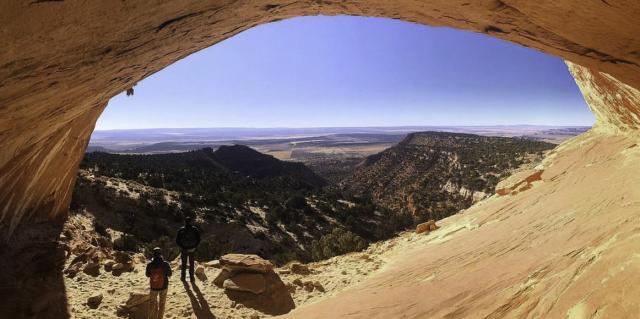BLM invests $6 million from Bipartisan Infrastructure Law for ecosystem restoration partnerships in eight states
Organization:
Media Contact:
The Bureau of Land Management announced today nearly $6 million for ecosystem restoration projects in seven western states and Florida. The funds are available through the Bipartisan Infrastructure Law, a signature feature of the Biden-Harris Administration’s Investing in America agenda.
“The funding announced today from President Biden’s Bipartisan Infrastructure Law will advance important restoration projects, putting Americans to work on our public lands to help restore wildlife habitat and protect clean air and water,” said BLM Director Tracy Stone-Manning. “We are proud to use this key investment to work closely with our partners to improve the health of our public lands.”
About $2.5 million of the investment will be directed toward projects using Good Neighbor Authority, which allows Federal land management agencies to create agreements with non-Federal partners for projects on public lands.
Projects being funded through the investment include:
Alaska
- $1.5 million to restore lands impacted by historic placer mining projects
- $1.4 million for work under Good Neighbor Authority focused on invasive species inventories, watershed restoration projects, and condition assessments for salmon habitat restoration in the Norton Sound, Yukon, and Kuskokwim regions.
California
- $73,000 to supplement a $1.7 million project to restore and reclaim mine lands and increase drought resiliency in the Cache Creek/Harley Gulch watershed.
- $150,000 to be added to an investment made last year to restore 100 acres of riparian forest in the Headwaters Forest Reserve. This project is a partnership with the Wiyot Tribe under the Good Neighbor Authority.
Florida
- $675,000 toward a shoreline restoration project at the Jupiter Inlet Outstanding Natural Area. This project will extend shoreline restoration work along the Loxahatchee River and Indian River Lagoon, increasing the area's resistance to climate change and enhancing habitat for native plants and animals. The project also promotes public access through outdoor recreation and education activities.
Montana
- $750,000 to expand a partnership with Fort Belknap Indian Community, doubling an investment made last year. The project is part of Seeds of Success, the national wildland seed collecting program. This co-stewardship effort integrates Indigenous knowledge and employs Tribal youth in restoration of Great Plains grassland prairies on public lands that are part of the ancestral homelands for the Aaniiih and Nakoda Tribes.
New Mexico
- More than $285,000 under the Seeds of Success program to broadcast-seed at various locations across about 2,000 acres of public lands using native seed. BLM will monitor each site for multiple years to assess condition, trend, and success.
Oregon and Washington
- $540,000 for work with partners under Good Neighbor Authority. These funds will help to restore aquatic habitat and improve aquatic connectivity along Thirtymile Creek, a tributary of the John Day River in Oregon’s Prineville District, and to support wildfire resilience projects around Buckhorn Mountain in Washington’s Wenatchee Field Office.
Utah
- $300,000 to improve backwater and shoreline habitat on the Colorado River near Moab, adding to a similar investment of funds a year ago. This Good Neighbor Authority project will include partners to restore native plant communities, reduce fire-prone Russian olive plants, improve wildlife habitat for the Southwestern Willow Flycatcher and Yellow-billed Cuckoo, and improve dispersed camping access.
To date, BLM has allocated more than $61 million toward ecosystem restoration from the Bipartisan Infrastructure Law. Good Neighbor Authority partnerships account for nearly one-quarter of the total amount, with other large investments aimed at restoring lands impacted by historic mining, improving sites and increasing access to recreation, and restoring public lands impacted by wildfire, drought, and other human and natural causes.
BLM’s conservation and ecosystem restoration program advances President Biden’s Justice40 Initiative which aims to deliver 40% of the overall benefits of certain federal investments to disadvantaged communities that are marginalized by underinvestment and overburdened by pollution.
For more information about the BLM’s investments using the Bipartisan Infrastructure Law, visit BLM.gov/infrastructure.
The BLM manages more than 245 million acres of public land located primarily in 12 western states, including Alaska, on behalf of the American people. The BLM also administers 700 million acres of sub-surface mineral estate throughout the nation. Our mission is to sustain the health, diversity, and productivity of America’s public lands for the use and enjoyment of present and future generations.

